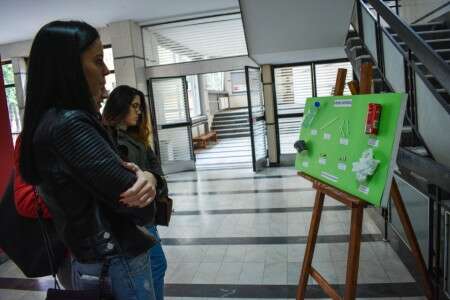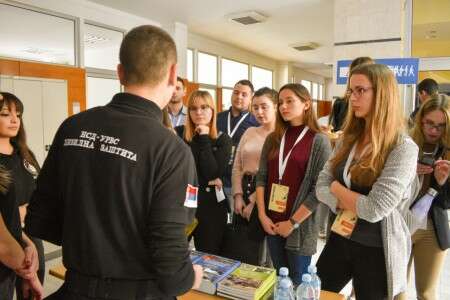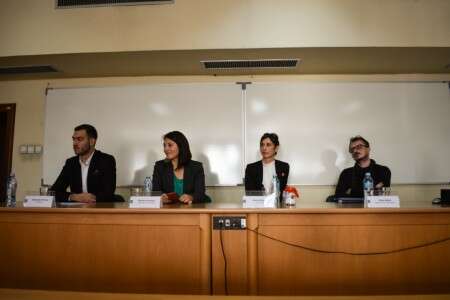The Conference on Environmental Security named "Let's get serious!" was held on November 9 and 10 at the Faculty of Political Science in Belgrade, organized by the Center for Policy Making. On the second day of the Conference, Mirjana Jovanovic, project manager at Belgrade Open School, participated in the panel Clean Air - Luxury or Right? Besides her, speakers were Srdjan Kukolj of the Health and Environment Alliance and Natasa Raskovic of the Red Badges civic campaign.
Panel moderator Aleksandar Pekovic, at the very opening of the discussion, warned that air pollution is extremely alarming and that it affects our basic human right - the right to life. "The air condition is better now than in the past few weeks, but the reason is that the winds are dispersing the particles, but the pollution is still there," Pekovic explained.
Mirjana Jovanovic said that BOS realized that citizens do not understand where the pollution is coming from, and added that even when they find information about it, ordinary citizens could not understand it, because these data are mostly technically stated. “It is not a point for the citizens to measure the level of air pollution themselves, because this is not possible and it is duty of the competent institutions, the point is that citizens understand the complexity of this problem, the responsibility, but also the normative framework. What citizens can do is to organize themselves, to ask the competent authorities for information on what kind of air we breathe, as well as to take concrete measures, ”Mirjana Jovanovic said.
Srdjan Kukolj spoke about the state of the air in the European Union and pointed out that there are still countries in the EU that subsidize the industrial sector due to coal consumption. He said that there are directives on air quality, but also on other sectors dealing with air pollution, but that the situation in the EU is not ideal either. “The role of the Western Balkan countries is to evaluate the quality of the air and how much it affects our health. The difference between the countries of the Western Balkans and the EU is that the Union is still striving to resolve this problem systemically, ”. He pointed out that this was a complex problem that required a transition that would surely take about a decade, and stressed that because of this we need to have a clear and firm strategy.
"Smederevo has a population of 130,000 and Zelezara is a serious polluter, however, when you start to deal with the pollution problem you realize that the pollution index is much higher in winter than in summer, which indicates that heating plants are also a big polluter. The third major pollutant are individual cumbustions, ie. citizens who are heating on wood and coal, ”explained Natasa Raskovic. She indicated that when it comes to this problem, we cannot just point the finger at the industry. Natasa Raskovic believes that citizens are not sufficiently aware, but that the Red badges are largely working to raise awareness. "We are trying to mobilize the community, even though many citizens ignore the problem because Zelezara is their primary source of income and therefore have to choose between food and clean air. It is important to launch a critical mass, because only then we can come up with some requirements, ” she concluded.
The panel was followed by two parallel events: Case study and Speed dating. Speed Dating gathered companies, organizations and institutions such as the AlgiOx startup, AIESEC, EkoBlog and the Emergency Risk Management Scientific and Professional Society.
Soruce: http://www.fpn.bg.ac.rs/30237?jezik=lat#prettyPhoto



